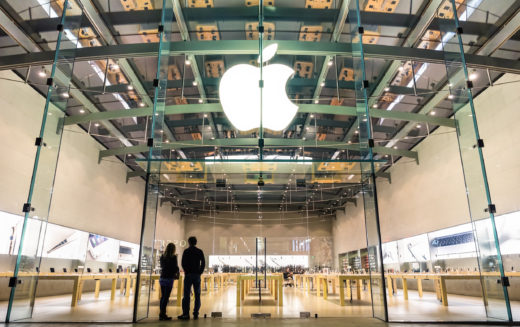Bringing Home The Bucks Won’t Solve Many Problems
Apple has a lot of cash.
At last count, the company’s horde had grown to a record $237 billion. But, as we all know, almost half of that supply is stuck overseas. If Apple or any other company that paid lower taxes (or no taxes at all) in a foreign jurisdiction brings the money home, they’ll have to pay Uncle Sam up to 40%.
Ouch!
President Obama recommended charging companies a lower tax rate of 19% on repatriated profits, but President-Elect Trump has floated lower numbers – zero to 5%. He wants to tie taxes on corporate profits from overseas to infrastructure projects at home, providing some budget cover for his campaign promises.
Both approaches try to accomplish the same goal: provide companies a way to bring home the idle funds sitting in foreign accounts so that they can put the money to use domestically.
The problem is companies have already deployed a lot of that money. On top of that, they aren’t spending all the bucks they hold in the U.S., anyway.
In 2013, Apple (Nasdaq: AAPL ) issued $17 billion of bonds. By any reading of its balance sheet, the company didn’t need the money. It had more than $100 billion in cash and was creating $20 billion worth of free cash every quarter. But a big chunk of that money passed through Ireland so it wasn’t taxed (which is a big can of worms we can open another time).

Instead of bringing the cash back to the U.S. and paying Uncle Sam, Apple kept the money offshore and issued bonds domestically to pay dividends and buy back its stock. The company owes the U.S. taxes on the interest it earns overseas, but it writes off the interest it pays on outstanding bonds.
In the world of accounting, to the extent the company issued bonds, the foreign cash holdings were a wash.
In the big picture, this must have worked out well for Apple, because the company did the same thing again in this year, as did IBM (NYSE: IBM), which also holds billions of dollars overseas.
Microsoft (Nasdaq: MSFT), which has more than $100 billion outside the U.S., issued bonds to fund its purchase of LinkedIn.
Alphabet (Nasdaq: GOOGL), formerly Google, is also a member of the “they-can’t-need-the-money-but-issued-bonds-anyway” club.
Presumably, when these companies finally bring home buckets of cash they’ll immediately pay down their outstanding debt, pairing off their assets and liabilities.
There’s no question that companies like Apple, Microsoft, IBM, Alphabet, and others that hold large amounts of cash overseas have more foreign funds than domestic bonds outstanding.
But the point is that those funds aren’t as idle as they might appear. So, when they finally make it back stateside, chances are they won’t generate a flurry of new corporate investments.
Even if the funds were totally unencumbered, we shouldn’t expect companies to deploy them if they bring them home. While U.S. companies hold $2.1 trillion overseas, they also hold $1.92 trillion domestically. The foreign funds might be hard to spend, but the local cash doesn’t have strings attached.
If there are so many good uses of cash out there, just waiting to be funded if only we could get foreign profits home without an onerous tax, then why is so much money sitting in corporate coffers here at home?
The answer is obvious, even if it’s not a happy message.
Corporate leaders don’t see enough opportunity for sales to warrant further investments. They know that low growth, the hallmark of the economic recovery since 2009, will be with us for several more years. Their cost-conscious customers reiterate that fact every day with their purchasing choices.
Another testament to the low-growth story is what many companies actually do with their excess cash and bond proceeds – buy back their own stock. When your best use of cash is to purchase your company shares on the open market, it must mean the corporate landscape is devoid of good investment opportunities.
None of this should be news to investors, who have something of the same problem. We all want our money to work for us, and yet we have $2.7 trillion sitting in money market funds that pay little, if any, interest.
And banks are no exception. Financial institutions hold $2.2 trillion in excess reserves at the Federal Reserve. These are funds that could be lent as new credit if only they could find worthy borrowers and projects.
Across the board, our economy has a lot more cash available than it currently needs, which in part explains low yields and high stock prices. Adding more monetary fuel won’t make the economic fire burn any hotter.
So, don’t hold your breath waiting for a burst of activity based on a flood of money coming home. When all is said and done, instead of a flood it could be a stream of water that’s already passed under the bridge.
Disclosure: None.



